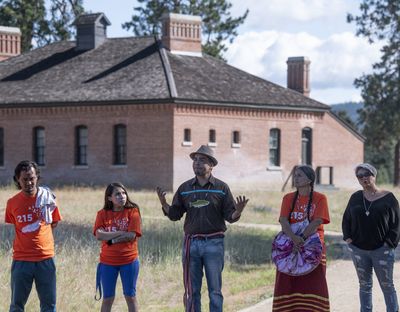Lawmakers say more needs to be done to quickly return Native American graves and remains to tribes

WASHINGTON – More needs to be done to return ancestral remains and artifacts to Native communities, and tribal leaders should have a bigger say in the federal government’s efforts, experts and members of the Senate Committee on Indian Affairs said Wednesday.
The Native American Graves Protection and Repatriation Act, which became law in 1990, “has helped to heal the pain felt by generations through return and repatriation of remains to their native communities,” said Committee Chairman Sen. Brian Schatz, D-Hawaii.
Schatz said that over 200,000 ancestral remains and approximately 2.5 million associated funerary items have been identified since the law was enacted, but only about 42% of ancestral remains and 70% of cultural items have been repatriated.
As the committee considers whether the law needs revisions, Schatz said it is imperative to do more to fulfill the law’s promise of ancestral homecoming for Native communities.
Sen. Maria Cantwell, D-Wash., said that repatriation is of immense importance in Washington, which is home to 29 federally recognized tribes.
She noted that hundreds of graves were discovered along the Columbia River when the Wanapum Dam was cleared during maintenance in 2014, and how important it was for state authorities to alert local tribes quickly.
Experts also said American Indian and Alaska Native tribes and Native Hawaiian organizations should be part of the discussions to reform the law.
“Tribes should have a seat at the table, complete with meal and utensils,” said Valerie Grussing, executive director of the National Association of Tribal Historic Preservation Officers.
No tribal leaders were present at the hearing.
Informing and consulting with tribal members upon the discovery of a grave site should be the first step, according to Rosita Worl, president of the Sealaska Heritage Institute.
“We need to make sure that tribes are there right away, and that we have a say in any kind of inadvertent discoveries,” Worl said.
Grussing said that repatriation efforts are often slowed down by not recognizing the knowledge indigenous communities have through their oral history, which should be valued as a valid source of information. She said that it was an “outdated colonial approach” to disregard such oral testimonies, which are essential to the repatriation process.